Where the Presidential Candidates Stand on Climate Change

By:
Scientists have long warned that the warming climate would threaten U.S. coastlines, and recent floods off the Georgia and Florida coasts are confirming their predictions, as the New York Times reported in a recent piece about rising sea levels and "sunny-day flooding."
Yet, despite the bulk of scientific research illustrating the impact of greenhouse gas emissions on the environment, climate change continues to be a hotly contested political issue.
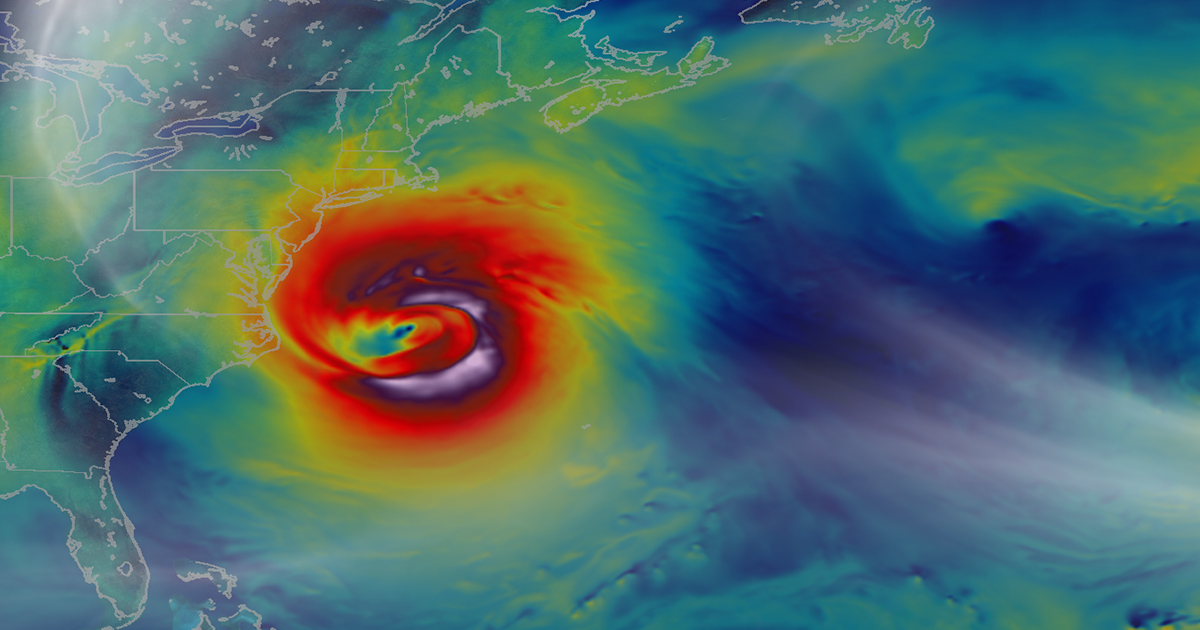 Flickr/NASA Goddard Space Flight Center - flickr.com
Flickr/NASA Goddard Space Flight Center - flickr.com
Climate change is also an important (though often overlooked) aspect of this presidential election — highlighted by the fact that just his week, Scientific American released answers to science-related questionnaires sent to the presidential candidates. Three of the candidates responded and addressed science policy issues.
Prior to the release of the questionnaires, ATTN: caught up with Michael Mann, Ph.D., a professor of atmospheric science at Penn State University, and Jonathan Koomey, Ph.D., a research fellow at Stanford University's Steyer-Taylor Center for Energy Policy and Finance to discuss the candidates' plans. (Fully disclosure: Mann is also a member of the climate and energy advisory board for Democratic presidential nominee Hillary Clinton.)
Here's where the 2016 presidential candidates stand on climate change and what experts have to say about it.
1. Democratic presidential nominee Hillary Clinton
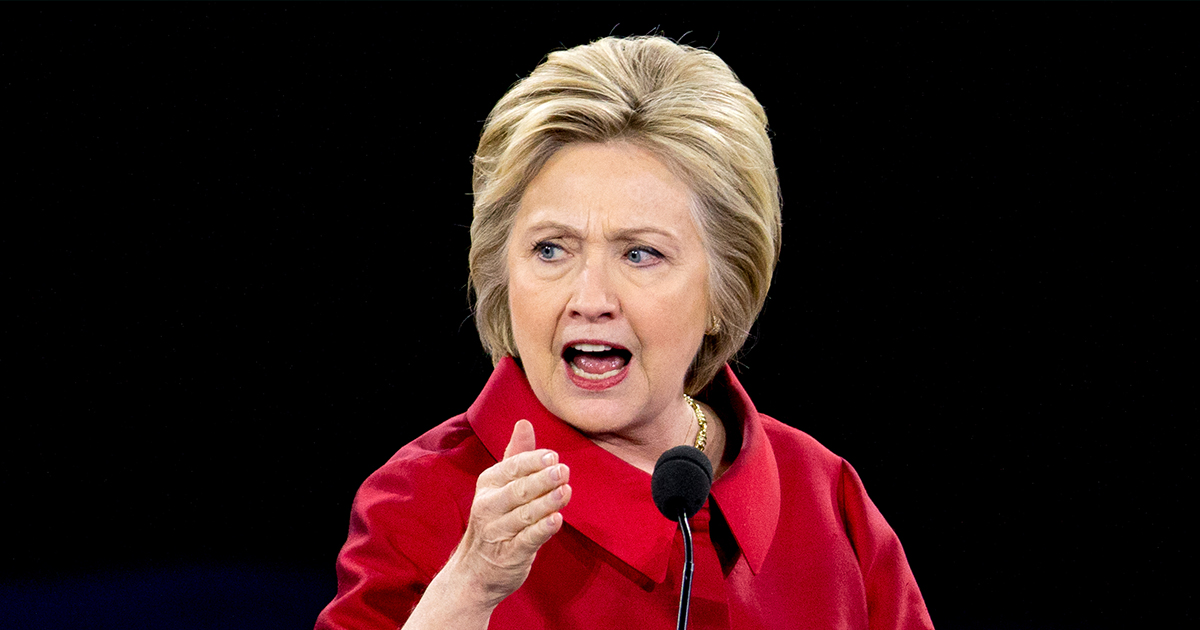 AP/Andrew Harnik - apimages.com
AP/Andrew Harnik - apimages.com
Clinton's campaign has outlined two ambitious goals: 1) for the country to generate enough clean, renewable energy to power all American homes within ten years and 2) to have half a billion solar panels installed in American homes by the end of her first term in office.
Mann explained why he believes these goals are realistic. "It's only a matter of political will," he said. "The climate solutions project, led by Mark Jacobson of Stanford, has provided a credible plan, based on already existing renewable energy technologies, whereby we could meet 80 percent of projected electricity demand by 2030 and 100 percent by 2050."
To achieve these goals, Clinton has pledged to provide grants to states, cities, and local communities — totaling $60 billion, the New York Times reports — to create clean, energy efficient buildings and public transportation.
“It’s very clear that she understands the reality of the problem, the nature of the problem and what it requires from us,” Koomey said. “She understands the complexity of it, and she understands the urgency.”
“On her website, it says 80 percent reductions by 2050,” Koomey added. “It's a sign that Clinton is willing to be very specific about that — so she gets the urgency. Then I see a lot of specifics: there's efficiency standards, a clean energy challenge to cut pollution, there's innovation. Another important thing is she talks about getting rid of tax subsidies from fossil fuels and changing the leasing on public lands. There's a connection to conservation and collaborative stewardship, which is really important for preserving the natural areas that we have.”
Clinton has proposed federal tax incentives for clean energy, and increasing public investment in clean energy technologies. She plans to work to develop building codes that would make residential and commercial buildings more energy efficient, and she has also detailed how coal communities would be revitalized as our energy sources shift.
"Among the more important things I see here is that she’s focused on revitalizing coal communities," Koomey told ATTN:. "That's really critical. One of the things that's happening already is that coal employment will go down as we use less coal."
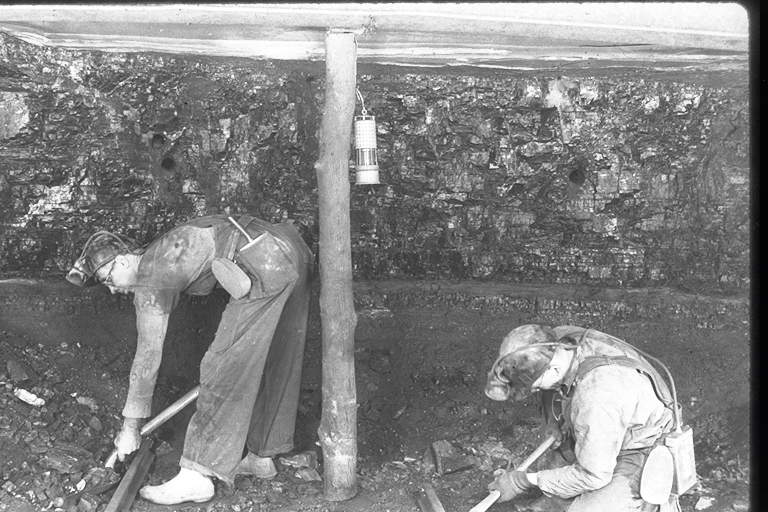 Wikimedia Commons - wikimedia.org
Wikimedia Commons - wikimedia.org
He expanded on why this is such an important issue:
"That's been happening anyway, and for multiple reasons, one of them being automation in the coal industry, another is the shift from Eastern coal to Western coal, because it's a lot more mechanized in the West. And then of course there's been natural gas that's been pushing coal out in the electricity sector, as well as increased renewable energy.
"So the coal industry is going away, and if that’s going to happen, there are whole communities and regions that will need help transitioning to a modern economy. It's important that the people who are leading the country understand that, because it's critically important.
"Right now, I think there's about 80,000 coal miners in the United States. So it's not a huge number, but there are a lot of businesses that depend on those coal miners to buy things. The coal miners live in communities, and they spend money on food and that supports other jobs and so on. So it’s a big deal for those communities. It's important that politicians recognize that complexity and do something about it.
"We’re entering a different world and we have to help people make that transition."
While Clinton has proposed federal tax incentives for clean energy and increasing public investment in clean energy technologies, her plan doesn't include a carbon tax, as the New York Times points out.
"A carbon tax is only one potential vehicle for pricing carbon, so the more relevant issue is the commitment to put a price on carbon," Mann said. "But ultimately that requires congressional action. There are limits to what can be accomplished by executive actions alone. What is relevant here then is the fact that the Democratic Party platform contains such a commitment. So prospects for a price on carbon would be excellent were a potential President Clinton to have a democratic-led congress to work with. Such a scenario is not out of the question."
Though Koomey said "a carbon tax would be a great thing," he also believes it possible for Clinton to meet her climate goals by other means.
"There are different ways to get to significant emissions reductions," Koomey said. "A carbon tax would be helpful but I don't think it's the only way to get to those reductions. There are economists who believe that's the only way, but I don't think they're correct, because the real economy is a lot more complicated than the simple models."
"I would like to have a carbon tax or emissions trading, either one," he added. "I think it would be useful to have one and it would help businesses to plan. It doesn't mean that you absolutely need a carbon tax right now. Politicians have to make judgments about what they can and can't do given the political reality."
Not everybody is thrilled with the prospect of Clinton at the helm of a plan to curb climate change. At the Nation, political analyst and author Naomi Klein argued that Clinton's ties to the fossil fuel industry and other corporate interests made her "uniquely unsuited" to address climate change.
"The problem with Clinton World is structural," Klein wrote. "It’s the way in which these profoundly enmeshed relationships — lubricated by the exchange of money, favors, status, and media attention — shape what gets proposed as policy in the first place."
Koomey, however, doesn't believe that Clinton receiving money from the fossil fuel industry undermined her climate policy goals.
"She’s got money from the financial industry, she's gotten money from the fossil fuel industry, she gotten money from a lot of places," he said. "So the question is: does that money affect her judgment? If you look at your plan, I would say the fossil fuel industry does not like this plan."
"Obama got money from the fossil fuel industry too, and he's taken more climate action than any president in history," Koomey added.
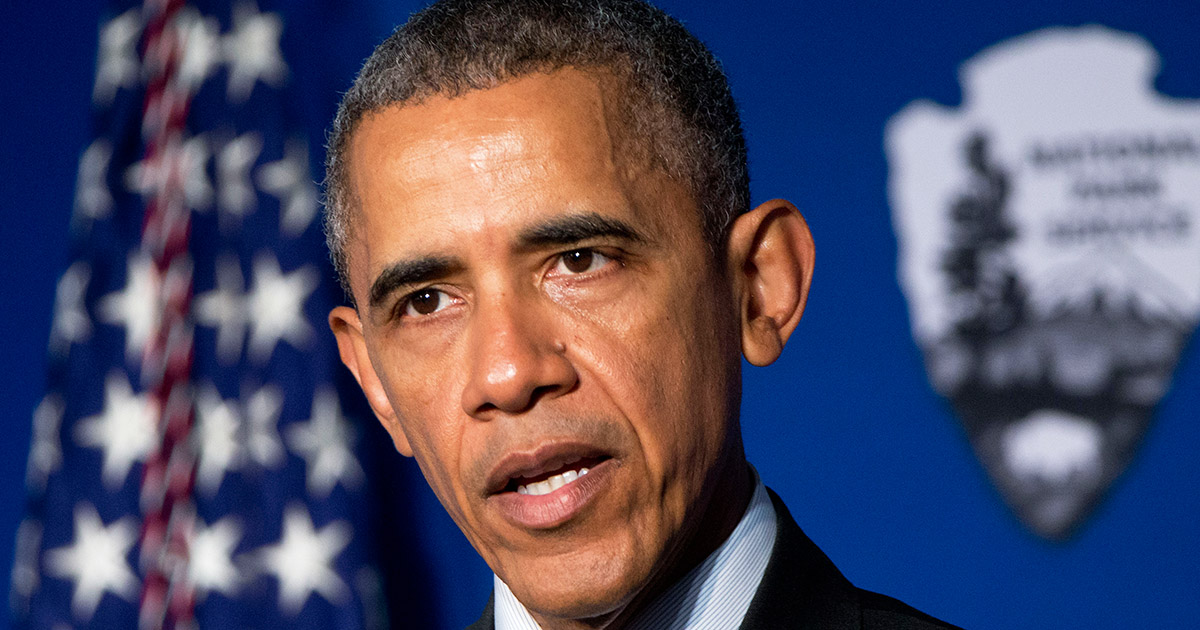 AP/Jacquelyn Martin - apimages.com
AP/Jacquelyn Martin - apimages.com
"I think she will need to confront these corporate interests," he added. "There will need to be lots more regulations and controls on them, and given the record that the Obama administration has, there’s probably a good chance that there will some cracking down."
Clinton supported President Obama's use of the Clean Air act to establish federal limits on carbon pollution produced by power plants and said "the unprecedented action that President Obama has taken must be protected at all cost," in a 2014 speech to the League of Conservation Voters, Mother Jones explains.
2. Republican presidential nominee Donald Trump
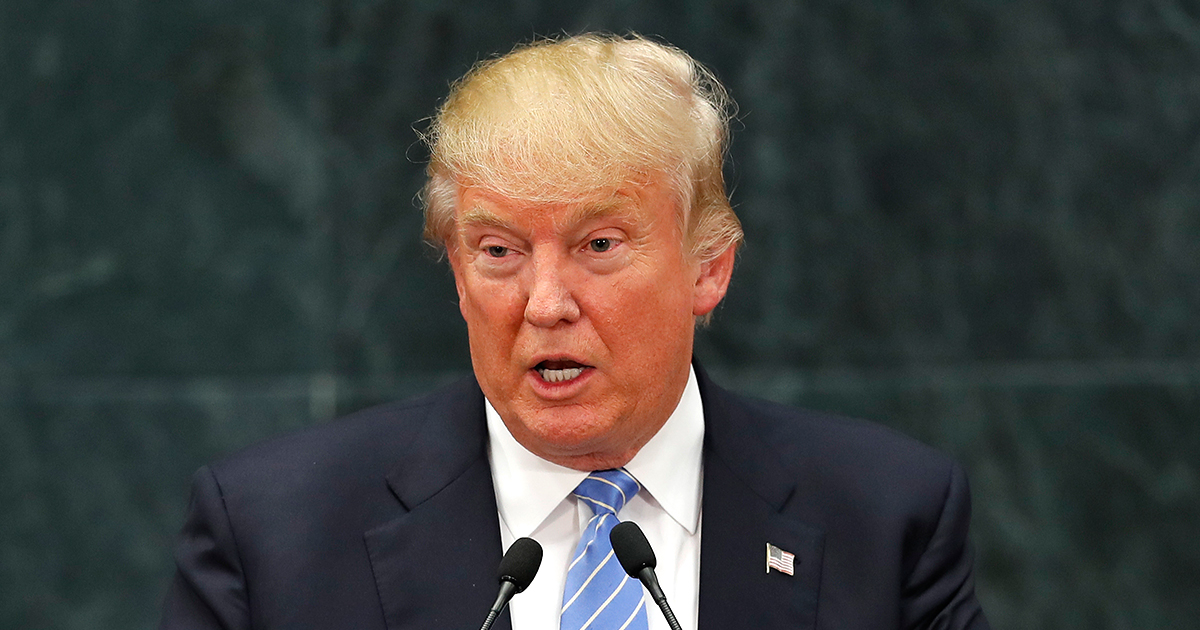 AP/Dario Lopez-Mills - apimages.com
AP/Dario Lopez-Mills - apimages.com
In a March interview, Republican presidential nominee Donald Trump told The Washington Post that he is "not a great believer in man-made climate change."
He has also said he would renegotiate the Paris agreement (an agreement on reducing greenhouse gas emissions within the framework of the United Nations), The Hill reports.
"If I was trying to evaluate a candidate and how they were dealing with the climate issue, I would want to make sure they understood the reality of the issue, the nature of the issue, the complexity of the issue, and the urgency of the issue," Koomey told ATTN:. "Trump has no idea about the reality of the issue."
In the past, Trump has said he believes the "concept" of climate change was created by China.
"The fact that it is very cold in one small part of the world for a short period of time does not disprove a long-term global trend," Think Progress explains.
From Think Progress:
"Those who disagree may use the common contrarian argument that there is no long-term global trend showing an increase in the Earth’s temperature. The most widely-respected meteorological organizations from across the world have shown that this is untrue. The World Meteorological Organization reports that the years 2001 to 2010 represented the warmest decade since the start of modern measurements in 1850. Just this week, the Japan Meteorological Agency announced that 2014 was the hottest year in more than 120 years of record-keeping by far. The National Oceanic and Atmospheric Administration (NOAA) is expected to announce a similar finding in a couple of weeks and so is NASA."
"Donald Trump is quite literally a threat to the planet," Mann said. "If we are to avoid catastrophic climate change impacts, we need to move aggressively in this issue in the years ahead. We can't avoid four years of denial and delay, which is what a Trump presidency would mean."
3. Libertarian Party presidential nominee Gary Johnson
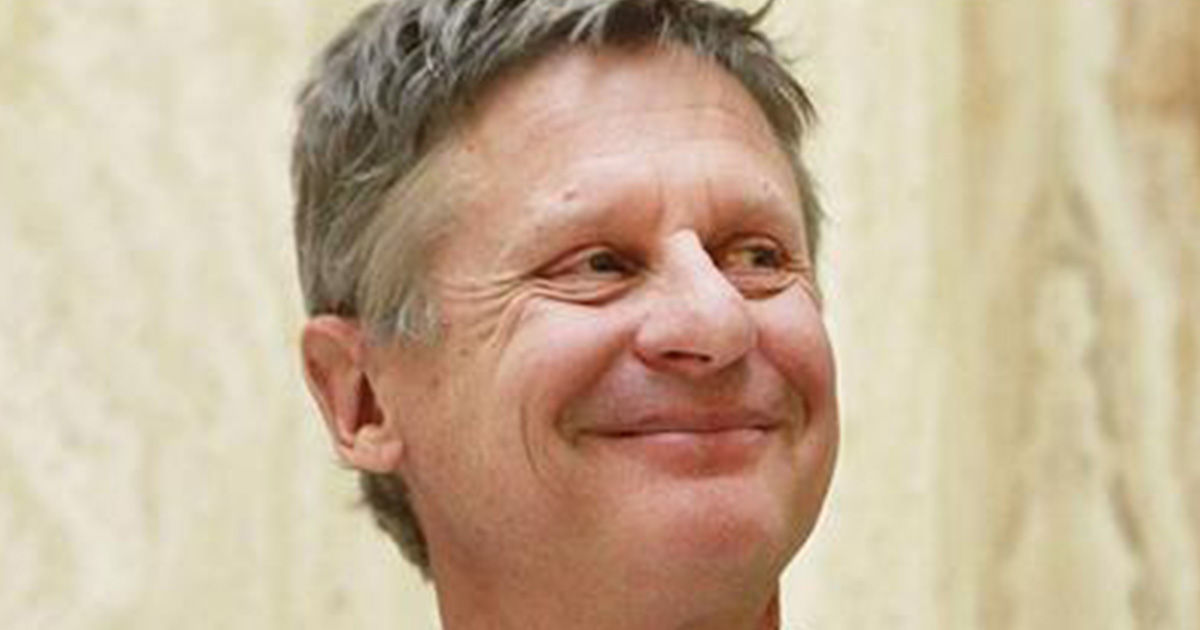 Flickr/GaryJohnson - flickr.com
Flickr/GaryJohnson - flickr.com
Former New Mexico Gov. Gary Johnson's position on climate change essentially boils down to this from campaign website:
"Is the climate changing? Probably so."
"Is man contributing to that change? Probably so."
"The statement about climate change by the Johnson/Weld team is disappointing, weak tea at best," Mann said. "They appear to want to get points for conceding that climate change is 'probably' real and that human activity is 'probably' contributing. However, the scientific evidence is overwhelming that climate change is real, and that human activity is responsible for most if not all of the warming that we have seen."
"Their position on the economics of cutting carbon emissions is no better," Mann added. "It is completely at odds with what leading economists who have studied the issue have concluded: that the cost of inaction is far greater than the cost of action."
In an interview with the Los Angeles Times, Johnson spoke quite directly about climate change. Still, Johnson said the free market — rather than the government — has helped curb the problem and should continue to do so.
From the Los Angeles Times:
"Well, that it does exist and that it is man-caused. I think a great example of the free market at work in addressing carbon emission — we’re all demanding less carbon emission — is the coal industry. Obama has not brought an end to the coal industry. The free market has brought an end to the coal industry."
Johnson also mentioned that he would consider a carbon tax, a claim he has since walked-back.
As is the case with various other areas of policy, Johnson, a Libertarian, believes the government is too involved in trying to instituted regulations to curb the effects of climate change.
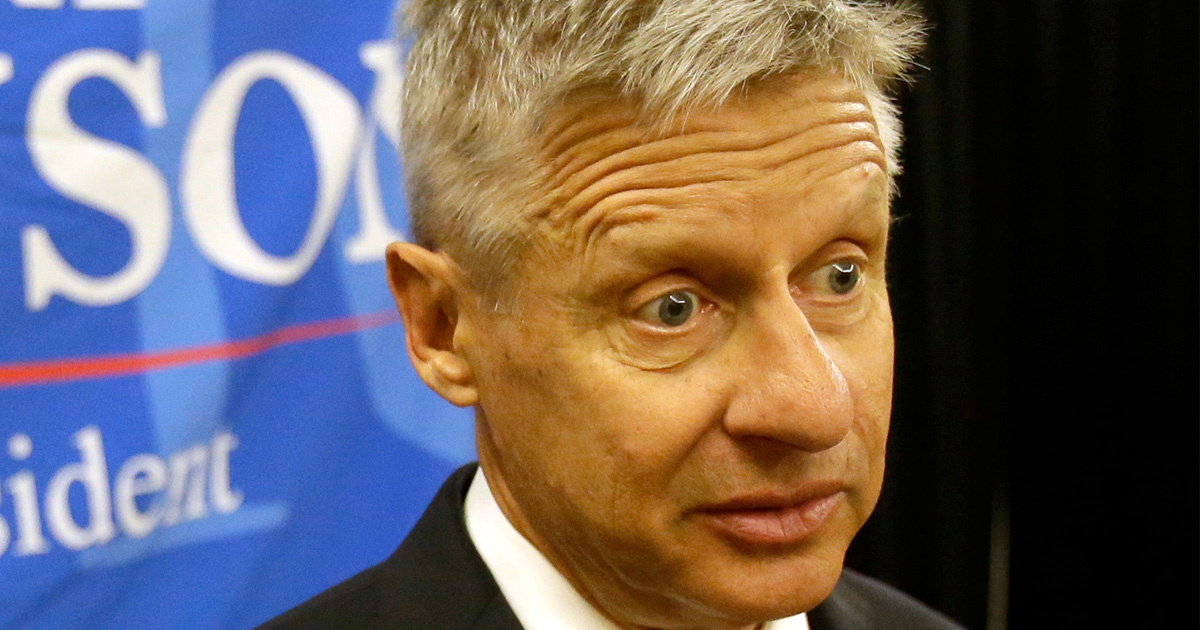 AP/John Raoux - apimages.com
AP/John Raoux - apimages.com
From the Johnson campaign website:
"The debate should be about how we can protect our resources and environment for future generations. Governors Johnson and [running mate and former Massachusetts Gov. Bill] Weld strongly believe that the federal government should prevent future harm by focusing on regulations that protect us from real harm, rather than needlessly costing American jobs and freedom in order to pursue a political agenda."
In other words, Johnson wants to tackle what he believes is direct harm, rather than a future issue — which clashes with the nature of the problem as climate scientists understand it.
"In terms of Gary Johnson, it's clear that he doesn’t really understand the nature of the issue and that's because Libertarians often resist anything that requires collective action," Koomey said. "Climate by its very nature requires collective action. So I think that while he acknowledges that there are environmental problems, he doesn't understand fundamentally that the climate problem is a challenge to his ideology."
"Then there's a question of the complexity of the issue," Koomey added. "This is a problem that will require us to change the way we generate value in the society. Fossil fuels are so deeply embedded in the U.S. and the world economy that it will be challenging and complicated to create a low emissions society."
Johnson and Weld do, however, support the existence of the Environmental Protection Agency — a controversial enough position among Libertarians to make it into a May story on the conservative news site Red State denouncing them as phonies.
4. Green Party presidential nominee Jill Stein
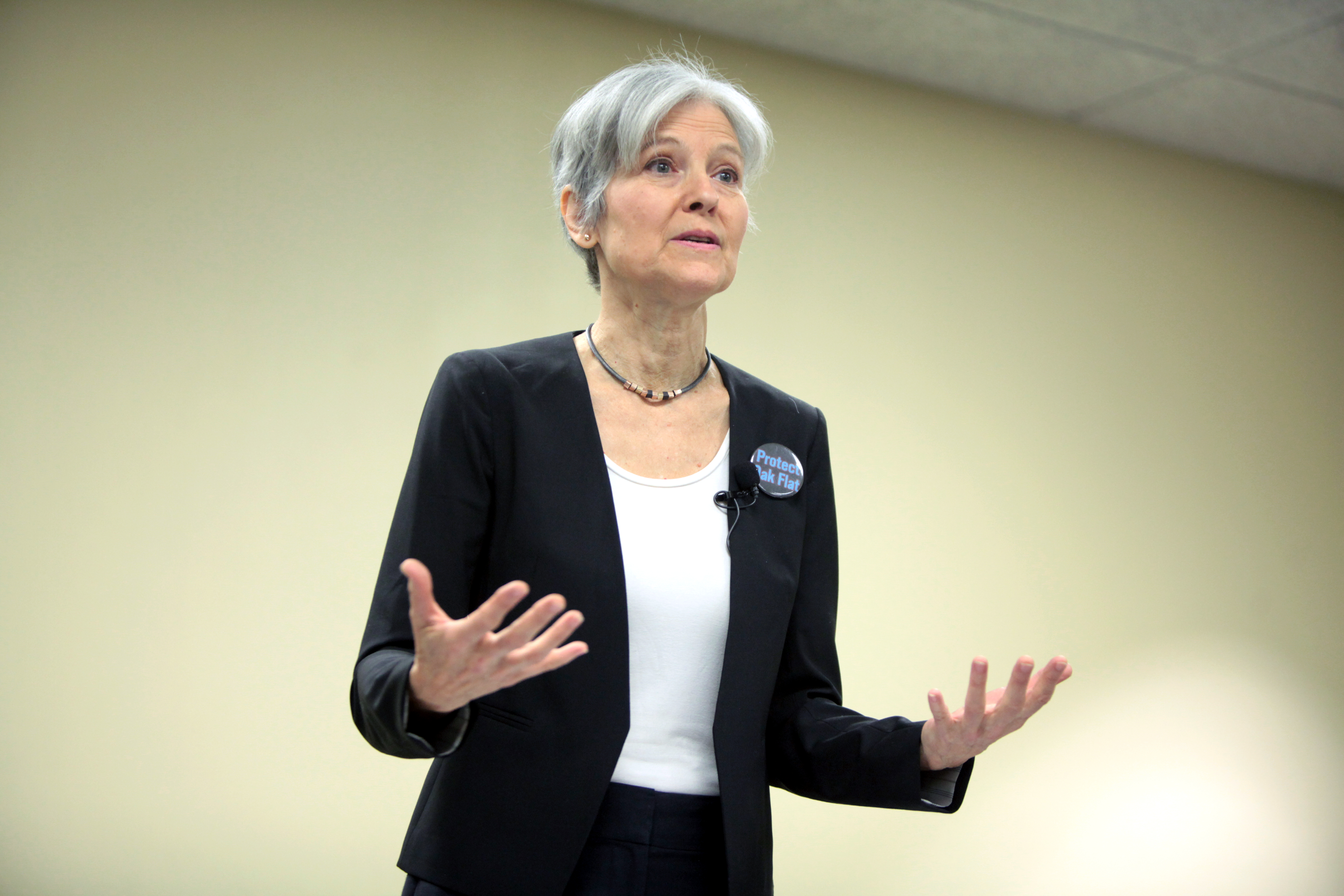 Wikimedia Commons - wikimedia.org
Wikimedia Commons - wikimedia.org
Though climate change is at the center of Dr. Jill Stein's platform, she has declined to provide many specifics about what she would actually do about it.
In a late August trip to Baton Rouge, Louisiana, Stein proposed a "green New Deal" that would benefit the economy and tackle the effects of climate change, The Hill reports.
Stein pledged to create 20 million clean-energy jobs — in local sustainable energy, recycling, retrofitting homes, and constructing renewable energy transportation and infrastructure — and a goal of making the United States run entirely on renewable energy by 2030.
"Stein’s climate platform is more aggressive — and would be much more expensive — than that of any presidential nominee to date," The Hill points out. Her policy proposal hopes to offset these costs with job creation.
However, the environmental scientists ATTN: talked to weren't sold on the plan.
"Stein made some incorrect statements about climate change (e.g. exaggerating the near-term extent of sea level rise), which eroded her credibility on this issue in my view," Mann said.
Mann references remarks, including an August tweet, which were debunked somewhat extensively on the Washington Post.
"It's a great thing to do clean energy, but these are all generalities, and I don't see that see that she has an understanding the complexity of solving this problem," Koomey said.
